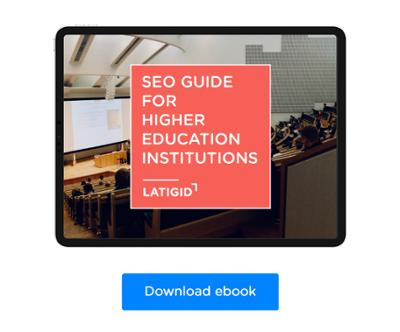
In recent years, the adoption of CRM in Higher Education has emerged as a transformative force, revolutionizing how universities and colleges interact with their diverse and ever-evolving student body.
In this article, we delve into the profound impact of CRM in higher education, exploring how these cutting-edge solutions have redefined the educational landscape for administrators, faculty, and students alike.
Definition of CRM in the Higher Education Context
In the higher education context, CRM stands for Customer Relationship Management. It is a strategic approach and a set of technologies that educational institutions use to manage and nurture relationships with their various stakeholders, including prospective students, current students, alumni, donors, faculty, staff, and other members of the academic community.
At its core, CRM in higher education revolves around understanding and engaging with these stakeholders in a personalized and meaningful way. It goes beyond the traditional transactional model of interactions and seeks to build long-term, mutually beneficial relationships that contribute to the institution's overall success and mission.
Advantages of Implementing CRM in Higher Education
Implementing CRM in higher education offers numerous advantages that positively impact various aspects of an institution's operations and student engagement. Here are some key advantages of CRM implementation in higher education:
Enhanced Student Recruitment and Enrollment: CRM allows institutions to personalize their recruitment efforts by tracking and analyzing prospective students' interests, engagement with marketing materials, and interactions with admissions teams. By tailoring communications and outreach based on individual preferences, institutions can attract and enroll students who are a good fit for their programs.
Improved Student Retention and Success Rates: CRM supports student success initiatives by identifying at-risk students early on through data analysis. Institutions can intervene with personalized support, such as academic advising and tutoring, to help struggling students stay on track and succeed academically.
Streamlined Communication and Engagement: CRM centralizes communication and engagement efforts, ensuring consistent messaging and reducing communication gaps. Institutions can use multiple channels like email, social media, and chatbots to reach students and stakeholders, fostering better engagement and response rates.
Personalized Learning and Support Services: With CRM data, institutions can personalize the learning experience for individual students. By understanding each student's strengths, weaknesses, and learning preferences, institutions can offer tailored course recommendations, personalized learning pathways, and targeted academic support services.
Data-Driven Decision Making: CRM provides valuable data and analytics that empower institutional leaders to make data-driven decisions. Insights into student behavior, preferences, and performance can help identify trends, allocate resources effectively, and implement evidence-based strategies to enhance institutional effectiveness.
Alumni Engagement and Fundraising: CRM is instrumental in maintaining relationships with alumni and donors. By keeping an updated alumni database and tracking engagement, institutions can organize alumni events, build a strong alumni network, and implement targeted fundraising campaigns to support various initiatives.
Efficient Workflow and Task Automation: CRM streamlines administrative tasks and workflows, reducing manual workloads and paperwork. Automated processes free up staff to focus on more meaningful tasks, leading to increased productivity and operational efficiency.
Integration with Existing Systems: CRM solutions can integrate with other existing systems, such as student information systems and learning management systems. This integration ensures a seamless flow of data and a comprehensive view of each student's journey, facilitating a holistic approach to student support and engagement.
Enhanced Institutional Reputation: CRM helps institutions deliver personalized and attentive services to students, which can lead to higher satisfaction rates and positive word-of-mouth. Satisfied students and alumni become brand advocates, enhancing the institution's reputation and attracting more prospective students.
Adaptation to Technological Trends: CRM implementation allows institutions to leverage emerging technologies, such as AI-powered chatbots, virtual assistants, and predictive analytics. These technologies can provide proactive support and anticipate student needs, leading to a more modern and tech-savvy educational experience.
Related article: How can universities benefit from a CRM?
Best Practices for Successful CRM Implementation in Higher Education
Implementing CRM in higher education requires careful planning and execution to ensure successful adoption and optimal outcomes. Here are some best practices for successful CRM implementation in higher education:
Establish Clear Objectives: Define clear and measurable goals for CRM implementation. Identify the specific problems you aim to solve and the outcomes you expect to achieve, such as increasing student enrollment, improving student retention, or enhancing alumni engagement. Align these objectives with the institution's overall strategic plan.
Form a Cross-Functional Implementation Team: Create a dedicated cross-functional team that includes representatives from admissions, student affairs, academic departments, IT, and other relevant departments. This team will collaborate to design, implement, and manage the CRM system effectively.
Conduct a Comprehensive Needs Assessment: Before selecting a CRM solution, conduct a thorough needs assessment to identify the institution's specific requirements and challenges. Gather input from various stakeholders to ensure the CRM system addresses their needs and pain points.
Choose the Right CRM Software and Vendor: Research and evaluate CRM software vendors that offer solutions tailored to higher education needs. Consider factors such as scalability, customization options, data security, integration capabilities, and ongoing support services. Select a CRM solution that aligns with your institution's unique requirements and budget constraints.
Plan for Data Integration: Ensure that the CRM system can integrate seamlessly with existing institutional systems, such as student information systems (SIS) and learning management systems (LMS). Data integration enables a holistic view of student information and streamlines processes.
Customize the CRM Solution: Tailor the CRM solution to meet the institution's specific needs and workflows. Customize data fields, communication templates, and user interfaces to align with existing processes and institutional branding.
Provide Adequate Training and Support: Properly train staff members who will use the CRM system, including administrators, advisors, and other relevant personnel. Offer ongoing support and resources to help users understand and leverage the system's full capabilities effectively.
Phased Implementation: Consider a phased approach to implementation, starting with a pilot project or a smaller-scale rollout. This allows for testing, refinement, and adjustment of the CRM system based on real-world usage and feedback.
Establish Key Performance Indicators (KPIs): Define key performance indicators to measure the success of CRM implementation. Regularly assess the system's impact on student recruitment, retention, engagement, and institutional efficiency.
Monitor and Evaluate Progress: Continuously monitor and evaluate the CRM system's performance against established objectives. Gather feedback from users and stakeholders to identify areas for improvement and make necessary adjustments.
Related article: CRM Software for Universities: The Best Options in the Market
About LATIGID
We are a Higher Education Marketing Agency, specialized in CRM implementation. With a deep understanding of the latest industry trends and best practices, we are well equipped to help your institution grow.
If you are looking for a Higher Education Marketing Agency to partner with, check our page to see what we can do for you!
Download our SEO guide and learn how to build a strategy to optimize your Higher Education Institution's website




